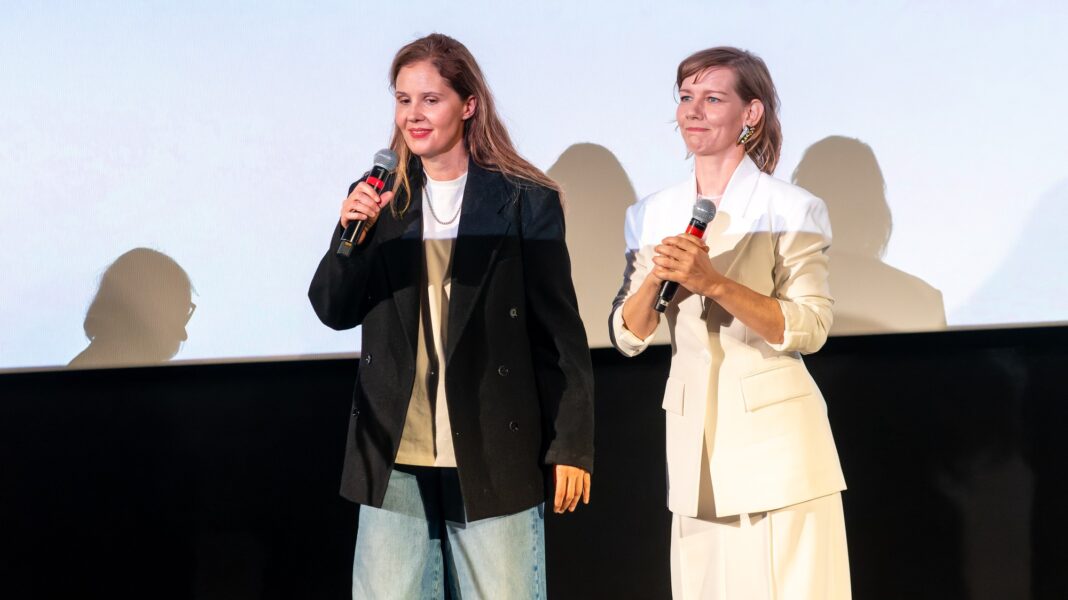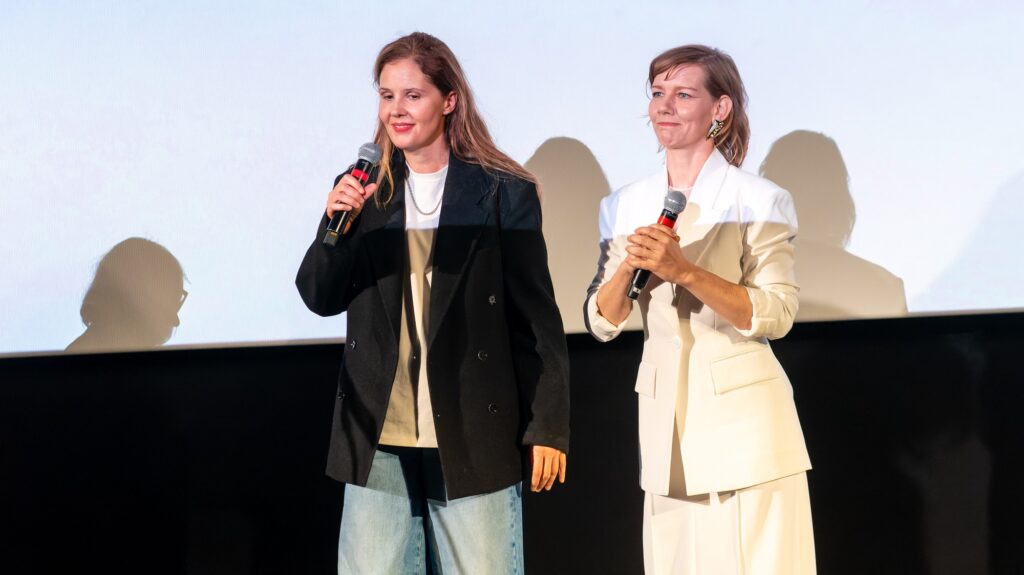

No movie feels as relevant to the year 2023 as “Anatomy of a Fall” does. It targets a particular part of the modern psyche, one stuck between ideals of the present and conventions of the past.
“Anatomy of a Fall” is a French courtroom thriller by French film director and screenwriter Justine Triet about a woman trying to defend herself in the case of her husband’s death. It also explores modern gender politics as a woman navigates the assumptions of others.
The film functions on the shifting opinions of the audience and is less interested in giving an answer to the actual cause of death, instead urging viewers to reevaluate their assumptions about gender.
German actress Sandra Huller plays cold and calculating novelist Sandra Voyter. She is not the perfect stereotypical wife or a homemaker, but that doesn’t make her a killer. Huller’s more ambitious personality makes her the perfect actress for a killer because she’s not kind or sweet enough for the society that she’s a part of.
Huller acts opposite Milo Machado Graner who plays her dead husband’s blind son. Graner gives an impressive performance and is able to deliver the emotionally gut-wrenching parts of the film as he expresses the inner moral conflict of the audience.
Triet, who both directed and wrote this movie, was inspired by the works of Alfred Hitchcock and Billy Wilder, in particular noir films like “Witness for the Prosecution” and “Strangers on a Train.”
“Anatomy of a Fall” feels less interested in the aesthetics of the genre like neon colors and gratuitous violence and instead desires to explore the morality of the noir genre.
Language functions as a metaphor for autonomy. With our main character stuck in France and only really able to speak German and English, this barrier strips away her power in the trial and makes her unable to defend herself.
On top of the film’s feminist subtext, it’s also interested in authorship and whose ideas belong to whom. Both Sandra and her husband are writers, sharing a creative relationship on top of an emotional one. The threads of their art become intertwined and create conflict within their lives.
The house that they live in also functions as a symbol, particularly for the relationship between Sandra and her husband. It’s a large, glamorous Chateau sitting on a mountain, but it’s isolated and constantly in a state of repair.
Maybe Triet could have titled this film “Anatomy of a Murder,” but her film is less about the act of killing and more about the mind — how people think, reason and perceive.
Rating: 5/5






